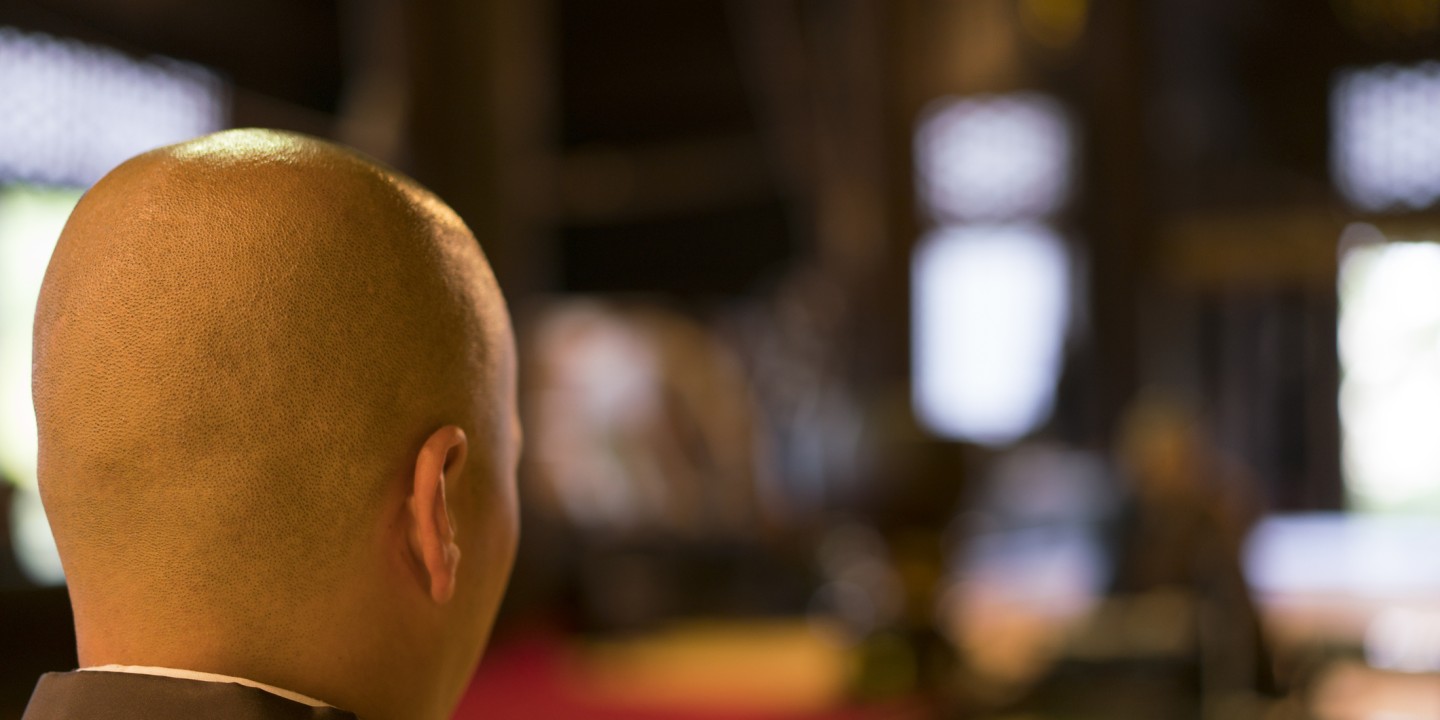Talking about religious decline with a Buddhist priest
The local clergy conversation turned to nostalgia about our so-called Christian past. I asked the Buddhist priest next to me what he thought.

Recently I was invited with a handful of other “clergypersons” to lunch at a local seniors home. I accepted the invitation—I thought it would be a chance to meet a few seniors, perhaps hear a few interesting stories, make a few connections, etc. Turns out we were not invited to eat with the seniors at all. We were sequestered off in a private room for a kind sales pitch for the home. I was, I confess, a little disappointed by this. I don’t particularly need more semi-awkward social situations with middle-aged-ish, white-ish, Protestant-ish pastor-ish types.
There was one point where we were politely munching on our salads and listening to our host talk about lawn bowling and cribbage, where I could almost feel my soul shriveling. This is what it’s come to? I despaired. This is why I devoted all those years to the study of theology? To sit with a bunch of polite, well-groomed clergypersons pretending to be interested in bingo night for a free lunch? The experience was right up there with seeing Richard Marx’s Greatest Hits in Apple Music’s “Suggested For You” section when I opened iTunes (I pondered what prior musical sins I could possibly have committed, what perverse algorithm could possibly have produced such a suggestion). This is what existential entropy must feel like, I melodramatically grumbled as I gazed longingly at the bottle of wine on the table that I knew none of us would dare touch.
Between the main course and dessert, the conversation turned, predictably, to the decline of the church. There were half-hearted diagnoses of the problem and the odd limp solution offered. There was talk of the good old days when churches were full and the culture was Christian and people dressed up on Sundays. There was a recognition that the structures we’ve inherited aren’t working anymore. People aren’t buying what the church is selling, alas. There was longing and lament, however guardedly it was expressed. Who wants to ruin a nice lunch, after all?
I wasn’t entirely telling the truth about the room being full of middle-aged white Protestants. There was an older Buddhist priest there, too, and I made sure to sit beside him. My wife is Japanese and studies Japanese dancing at the temple. I’ve had the opportunity to get to know the priest at various family and church events over the years. He even showed up at the Bible study I lead a few times. He calls me his Bible teacher; I call him sensei.
He’s a delightful guy and I was glad to have him close by to break the awkward silences. I had observed him listening politely to all of this nostalgic memorializing of our so-called Christian past, all this talk of how even though we came from different denominations we all worshiped the same God, all this thin sociological analysis of the state of the church in the post-Christian West. I know him well enough to know that he wasn’t going to make much of a fuss about having his religion referred to as a denomination (you know, the Lutherans, the Mennonites, the Baptists, and the Buddhists). I sighed and imagined that he was having very tranquil and centered thoughts while I was sliding into angst-ridden entropy.
Near the end of our lunch, sensei leaned over to me and asked me why I thought that the Christian church was having such trouble in this culture. I gestured toward the usual suspects—postmodernism, consumerism, individualism, pluralism. But then I had the good sense to stop talking and ask him what he thought. “What about you? Do you see similar trends in your context?” He smiled in a very tranquil way. “Oh yes,” he said. “Not many people come on Sundays. We have people who attend cultural events at the temple and who are interested in Japanese celebrations and rituals. But not many are interested in the Buddhist teachings. Mostly the older people.”
His concerns were identical to what I hear in church circles. What will happen when the carriers of this tradition and culture die? Who will pick up the baton? Will anything survive beyond cultural curiosity and highly selective practice?
We sat together with this for a bit. I looked out into the dining area where the seniors were finishing their lunch. I thought about what some of them had seen over their many decades, what many of them had suffered. Some had seen war, some had known poverty, some had endured backbreaking labor that I struggle to imagine. I turned to sensei and said, “Perhaps we will have to suffer for our communities to grow and thrive again.” He smiled. “I think so,” he said. “The Japanese community was strongest here when we first arrived during the war. We needed each other to survive. We were a community with a shared purpose.” I nodded along as I thought about the history of my own Mennonite community and about the church around the world. There certainly does seem to be a correlation between suffering and the strength of the church. And, of course, between comfort and weakness.
Nobody wants to suffer, of course. I certainly don’t. But there is an existential urgency that suffering often produces that easily withers and dies in contexts of comfort. Religion that was once understood as a response to the gaping wound at the heart of existence degenerates into a smattering of spiritual accoutrements to pretty up our private narratives. What was once a lifeline now becomes a product to consume. What once bound us to our neighbor in shared narratives of meaning and hope now becomes a status update. Ours is a context of comfort, certainly, but also a context quite conducive to the shriveling of souls. God help us. Literally.
Originally posted at Rumblings





